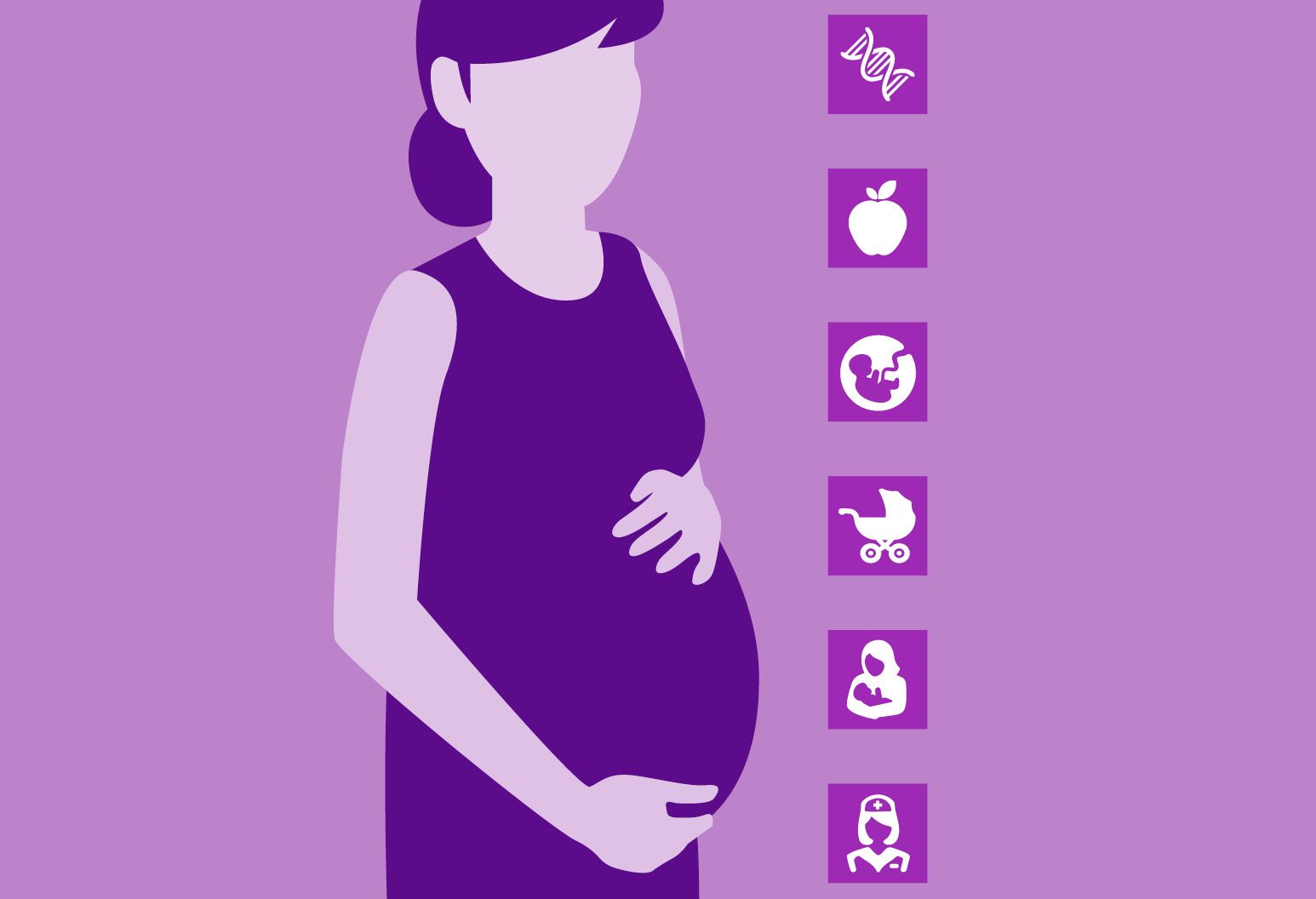Nutrition in pregnancy
What is nutrition in pregnancy?
According to the U.S. Food and Drug Administration (FDA), about 300 extra calories are needed daily to maintain a healthy pregnancy. These calories should come from a balanced diet of protein, fruits, vegetables and whole grains, with sweets and fats kept to a minimum. A healthy, well-balanced diet during pregnancy can also help to minimize some pregnancy symptoms such as nausea and constipation.
Our approach
While it may not always be easy to stick to healthy choices during pregnancy, good eating habits are essential during this exciting time because your baby’s development is influenced by the food you eat. That’s why our team works hard to uncover the nutrition regimen that will keep you and your baby strong and healthy.
First, we gain a comprehensive understanding of your current eating routine. Once we have a better understanding of your current choices, we offer you safe, precise recommendations for a healthier diet.
Other instructions
The American Dietetic Association (ADA) recommends the following key components of a healthy lifestyle during pregnancy:
- Appropriate weight gain
- Appropriate and timely vitamin and mineral supplementation
Fluid intake is also an important part of healthy pregnancy nutrition. Women can take in enough fluids by drinking six to eight glasses of water each day, in addition to the fluids in juices and soups. An expectant mother should talk with her physician about restricting her intake of caffeine and artificial sweeteners. Alcohol should be avoided throughout your entire pregnancy.
The U.S. Public Health Service recommends that all women of childbearing age consume 400 micrograms (0.4 mg) of folic acid each day. Folic acid, a nutrient found in some green, leafy vegetables, most berries, nuts, beans, citrus fruits, fortified breakfast cereals and some vitamin supplements can help reduce the risk of birth defects in the brain and spinal cord (called neural tube defects).
The most common neural tube defect is spina bifida (where the vertebrae does not fuse together properly, causing the spinal cord to be exposed), which can lead to varying degrees of paralysis, incontinence, and sometimes mental retardation.
Folic acid is most beneficial during the first 28 days after conception, when most neural tube defects occur. Unfortunately, many women do not realize they are pregnant before 28 days. Therefore, folic acid intake should begin prior to conception and continue through pregnancy. Your physician will recommend the appropriate amount of folic acid to meet your individual needs.
Most physicians will prescribe a prenatal supplement before conception, or shortly afterward, to ensure all of the woman's nutritional needs are met. However, a prenatal supplement does not replace a healthy diet.
Risks
While there are no direct risks or side effects related to our carefully crafted and well-balanced nutritional recommendations, risks and side effects of poor nutrition and weight management during pregnancy include:
- Issues absorbing calcium
- Issues creating red blood cells
- Abnormal bone health
How to prepare
During your nutrition counseling, our professionals may ask you to write down your daily diet. That way, we can look at your condition from every angle and create a balanced nutritional plan for you and your baby.
Our nutritional guidance doesn’t end after you deliver your baby; our experts are dedicated to your well-being postpartum, in addition to making nutritional recommendations for quality breast milk.
Post-counseling & guidance
From before you conceive to after you deliver, we're here to offer you and your baby a higher standard of care

